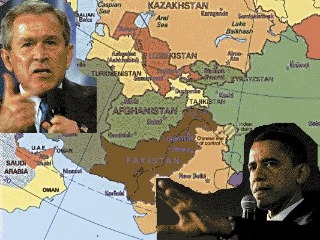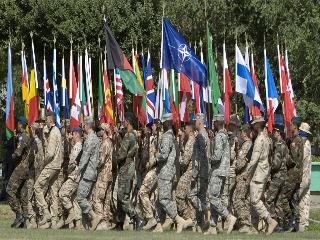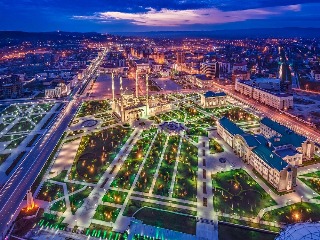“CACI Analyst, October 30, 2013”
AWOL: U.S. Policy in Central Asia
By Stephen Blank (the 30/10/2013 issue of the CACI Analyst)
The U.S. has decided to give up the base at Manas, presumably because that base is not worth retaining once it leaves Afghanistan next year, and will relocate the base to Romania. Washington is instead moving most of its logistics through Pakistan, with a corresponding decline in the use of the Northern Distribution Network. Once U.S. forces leave Afghanistan there will be no military presence in Central Asia to speak of. Second, the TAPI gas pipeline from Turkmenistan through Afghanistan and Pakistan, nominally the centerpiece of America’s New Silk Road initiative, languishes for lack of any financing.

NATO in Afghanistan – Paralysis as Policy?
By Richard Weitz (the 30/10/2013 issue of the CACI Analyst)
NATO’s inability to commit to a definite role in Afghanistan beyond 2014, along with perceived strategic setbacks in Central Asia and the South Caucasus, are reinforcing the narrative promoted by the Taliban, al-Qaeda, Iran, and to a lesser extent Russia and China, that a war-weary West is abandoning Eurasia. Urgent measures are needed during the next months to reverse this perception before it gains irreversible momentum. The perception is already leading regional players to hedge against the expected consequences of a diminished NATO role. NATO needs to reaffirm and clarify its commitment to Afghanistan and Eurasia.

Ignoring All the Problems Involved, Kadyrov's Chechnya Bets on Tourism
By Tomas Šmíd (the 30/10/2013 issue of the CACI Analyst)
Chechnya’s economy has been struggling with long-term problems, which have had a significant and visible impact on standards of living in the republic. Post-war reconstruction of the economy is far from accomplished and development is still hindered by an enormous level of unemployment. This provides a ground for both emigration and open sympathies with the opposition, which is currently represented by the radical Islamist wing alone. The Chechen government itself endeavors to spur some sectors of the economy, e.g. the tourist industry; however any major progress can hardly be expected without the implementation of significant political-economic reforms, and above all, an improvement of civic freedoms.

Azerbaijan and Armenia Stockpile New Weapons
By Bakhtiyar Aslanov (the 30/10/2013 issue of the CACI Analyst)
Since the 1994 cease-fire agreement between Azerbaijan and Armenia, negotiations between the parties have been overseen by the OSCE Minsk Group without any particular success towards peaceful solution. After the deadlock in peace negotiations over the Nagorno-Karabakh conflict in 2011, Azerbaijan and Armenia both accelerated their stockpiling of arms and intensified their public rhetoric of preparing for a new war.


